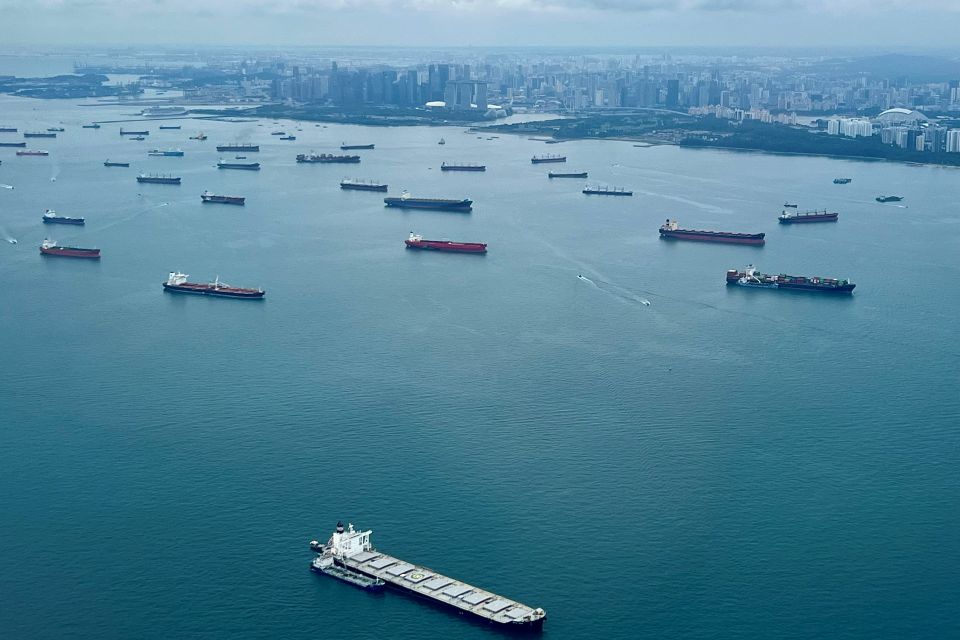Singapore has retained its title as the leading maritime city in the world, followed by Rotterdam and London. This follows from the 2024 Leading Maritime Cities (LMC) report from DNV and Menon Economics.
The city-state, with its large owned and managed vessel fleets, strategic geographic advantages, pro-business policies and its position as a leader in the maritime energy transition, is expected to hold this position for the next five years, the analysis determines.
Also read: Leading Maritime Cities 2022: Rotterdam is a maritime city on the rise
Best policy measures, initiatives, and support
Compiled in cooperation between classification society DNV and Menon Economics, the LMC report offers new insights into the maritime cities that offer the best policy measures, initiatives, and support. These cities excel in both soft and hard infrastructure, and boast elite talent enabling maritime companies and individuals to connect and prosper.
Similar to previous iterations, the study benchmarks each maritime city on five pillars – Shipping Centres, Maritime Finance and Law, Maritime Technology, Ports and Logistics and Attractiveness and Competitiveness.
‘Cities are major hubs for knowledge, skills, and innovation,’ says Knut Ørbeck-Nilssen, CEO Maritime at DNV. ‘Across various sectors, particularly in the maritime industry, they are competing to attract the best talent, the brightest minds, and the most promising business start-ups. As such, cities that succeed in these challenges will steer the green transition and become the leading maritime hubs in the world.’
He adds: ‘Since the last edition of the Leading Maritime Cities report was published in 2022, global tensions have reverberated throughout the maritime industry. Despite this, shipping as a whole has shown a remarkable resilience.’
Also read: DNV launches guidelines for carbon capture on ships
‘Singapore is world-leading hub’
Singapore hit the top spot in three out of five pillars, retaining its position as leader in Attractiveness and Competitiveness and overtaking Athens and Shanghai in Shipping Centres and Ports and Logistics, respectively.

Dr Shahrin Osman, business development director, maritime advisory and co-author of the report: ‘Singapore is undoubtedly the world-leading hub at the forefront of the maritime industry. It appears unaffected by the many changes currently sweeping the sector and is expected to maintain its top spot for the next five years through its implementation of a consistent strategy for innovation and its investment into green transformation and digital technologies.’
Notable shifts
‘It is encouraging to see new cities elevating their standing in the list this year,’ adds Osman. ‘In a notable shift, Busan, South Korea, surpassed Singapore to become the world-leader for Maritime Technology, adding USD 9.22 billion to its export volume in the first half of 2023. Similarly, London claimed the pole position in Maritime Finance and Law from New York, with the report recognising the city as a home to world-leading maritime law-related and marine insurance institutions.’
Fourth and fifth place overall went to Shanghai and Oslo, meaning that three of the five leading cities are in Europe, with the remainder in Asia. Shanghai is also predicted to grow in importance across the next half-decade and become the second most prominent maritime city.
Dr Erik Jakobsen, partner and chair of Menon Economics: ‘Beyond the top five cities, we see a lot of dynamics happening. Hong Kong, which held fourth position in 2019, has now fallen to twelfth place. On the other hand, despite war and turmoil in the Middle Eastern region, Abu Dhabi has strengthened its position considerably. The city made the most remarkable jump, moving up ten places from 32 to 22.’
Singapore, Oslo, Shanghai, and Rotterdam best prepared for digital transformation
The analysis for the 2024 edition of the report saw the introduction of more subjective indicators, revealing the perceptions and evaluations of 190 invited business executives – mostly shipowners and managers – from around the world. Combined with objective data, this has been instrumental in addressing the transformative effect of decarbonisation and digital revolution on the shipping industry. The impact of both key factors can be felt throughout all the pillars the maritime cities are benchmarked against.
In addition to the LMC ranking, the maritime experts viewed Singapore, Oslo, Shanghai, and Rotterdam as the cities best prepared for digital transformation. Singapore’s investment and focus on maritime decarbonisation has also further cemented its position as the world’s leading centre for green technologies and solutions, followed by Oslo and Rotterdam.
Picture (top): Singapore retains the number 1 spot in the Leading Maritime Cities (LMC) report conducted by DNV and Menon (source: Nikos Spaeth/DNV).
Also read: DNV: Energy efficiency measures crucial to meet climate targets








